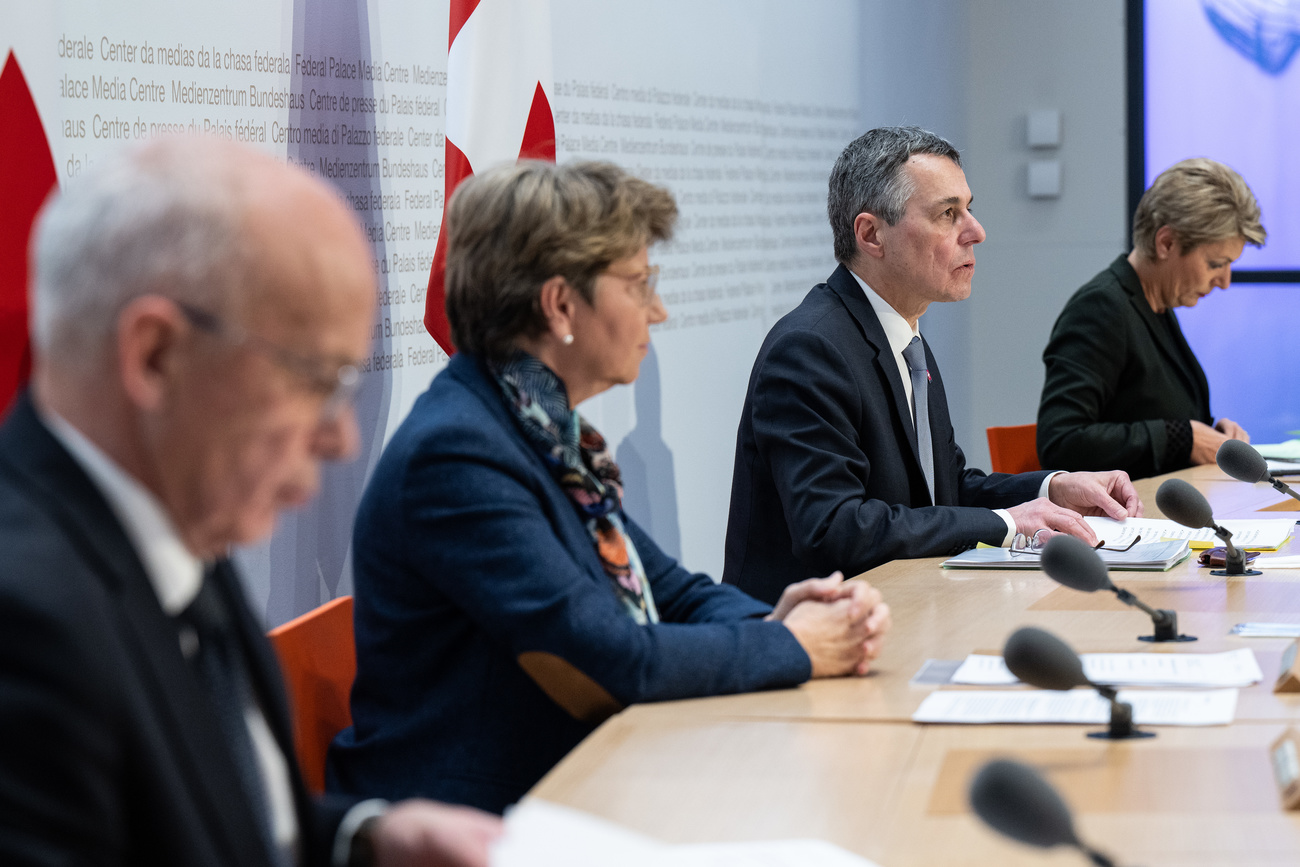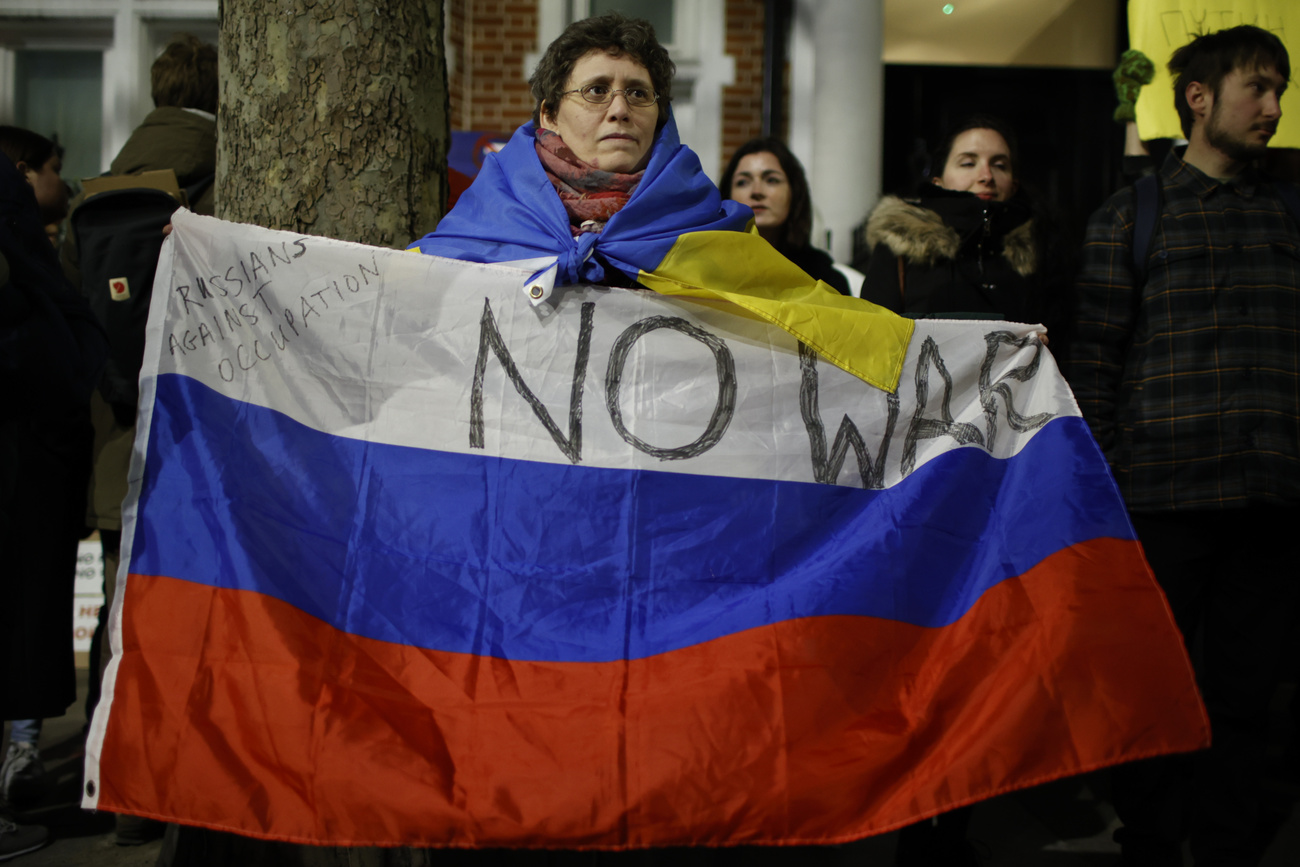
Government’s crisis handling comes under more criticism

Several interviews in the Sunday press are critical of the Swiss government’s response to the Ukraine war, just a few days after a parliamentary audit committee said the executive had been “unprepared”.
After Russia invaded Ukraine on February 24, the Swiss government’s initial wavering on whether it was joining in the European Union sanctions led to criticism at home and abroad, and it hasn’t died down.
In Sunday’s SonntagsBlick, Alfred Heer of the right-wing People’s Party, who is also a Ukraine rapporteur at the Council of Europe, slammed the government for not anticipating the invasion.
“It would have been urgently necessary to understand Putin […] and that his statements were not just empty threats,” Heer told the paper. “This way we could also have better prepared for the influx of refugees.”
“But the government had no scenario ready to pull out of the drawer in the case that Putin actually invaded,” he said.
Leaked documents
As for how it could have been better prepared, Heer doesn’t elaborate. But a letter from a parliamentary audit committee (of which Heer is a member) to the government, leaked to the media earlier this week, has more concrete criticisms.
According to the April 4 letter, first reported by the Le Temps newspaper on Friday, one problem lies in the lack of coordination and effectiveness of the government’s security advisory group, made up of representatives from the foreign, defence, and justice ministries.
Not only did this body fail to inform the government of its appraisal of the Ukrainian situation before February 24 (despite meeting twice to discuss it); there are also questions about whether the right people are sitting on it, the audit committee writes.
Most glaringly, the head of the Swiss army, or any high-ranking army official, was not included in the meetings of this core security group, even after the outbreak of the war: “apparently the view of the defence ministry and the government is that the war in Ukraine doesn’t concern the army”, the letter says.

More
Switzerland backs full EU sanctions against Russia
Crisis unit
The country’s biggest business federation, Economiesuisse, also got in on the criticism act on Sunday in the NZZ am Sonntag.
Economiesuisse director Monika Rühl told the newspaper that the government looked “very helpless” after the outbreak of the war, and that the problems handling Covid also suggest it’s time to improve crisis management.
“A permanent crisis unit is needed, to mitigate or get rid of these moments of hesitation,” said Rühl. She recommended the unit be staffed by “crisis mangers” from various ministries, depending on which problem is at hand.
The idea isn’t new, having also been mooted during the pandemic, when the Swiss federal system was accused of moving too slowly. Government spokesman André Simonazzi, however, is not keen on a structural overhaul.
The government has already examined several times the idea of such a unit, Simonazzi told the NZZ am Sonntag. “But each time it came to the conclusion that even in a crisis it was more sensible to keep working with existing structures – albeit faster and more intensively”.

In compliance with the JTI standards
More: SWI swissinfo.ch certified by the Journalism Trust Initiative




























You can find an overview of ongoing debates with our journalists here . Please join us!
If you want to start a conversation about a topic raised in this article or want to report factual errors, email us at english@swissinfo.ch.